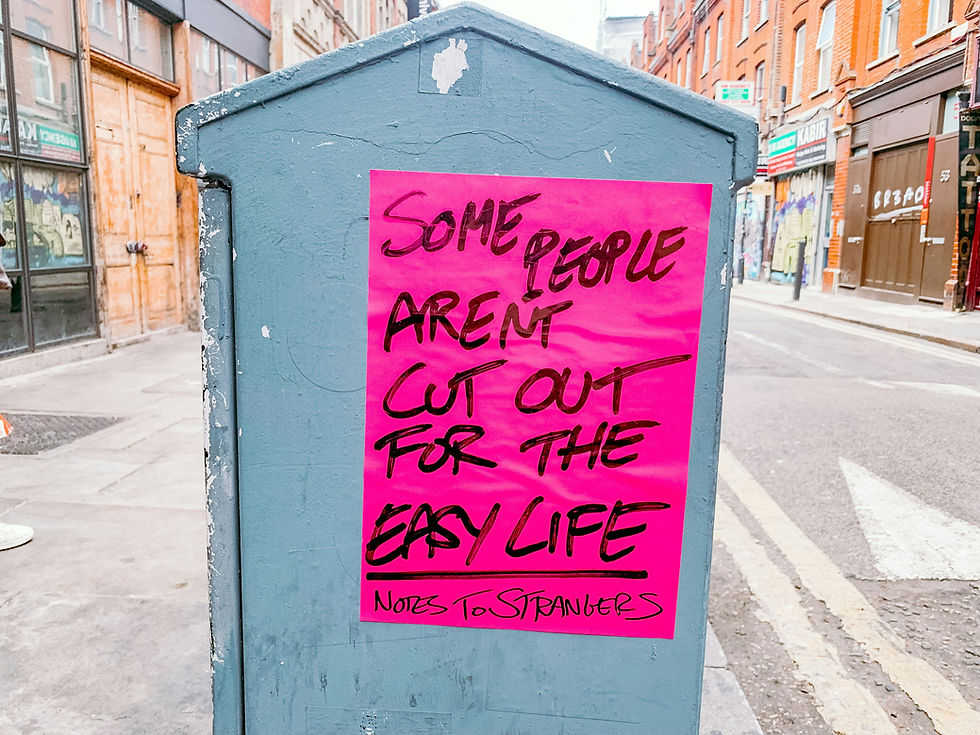Write as if no one will read it – Pseudo-advice or a stroke of counterintuitive genius?
- Martyn Foster

- May 15, 2020
- 3 min read
We’re always told to dance as if no one is looking, sing as if no one is listening, have sex as if no one is watching…Ok, I made that last one up, but (puts on the voice of Morpheus from The Matrix) “what if I told you”, to write as if no one will read it, does it still hold up or does it just “sound good”.
It is highly likely that if you’re starting off your career as a writer that you’re not going to have a large following and be writing New York Times best sellers (but feel free to aim high), and that is great, because now is the time to learn and hone your craft whilst hardly anyone will see your inevitably horrendous early attempts! Haha! I say this with tongue in cheek, but the sentiments ring true.
Before we get too down about our readership numbers, or lack thereof, let’s explore why it may help to write as if no one will read your work. One of the things I struggle with when I write is resistance. I keep thinking that I have to write every sentence in a perfectly articulate manner communicating exactly what I want it to say neatly within the paragraph embodying the idea which is then nestled in the overall body of work. This, inevitably, slows me down something chronic, as I’m trying to make sure the reader understands exactly what I’m trying to say to the nth degree. We can become quite conscious of ourselves and anxious when we concern ourselves with “what will people think?” and this can even prevent us from creating and sharing as the focus is on the reader and not the writing. I’ve initiated a daily exercise to help myself and I will discuss this next.
To facilitate a write-as-if-no-one-will-read mentality, I’ve started doing my own “Daily Musings” every morning, in which I write down in a journal my unfiltered thoughts on what is on my mind. The aim is to just get my thoughts down on the page (two pages seems a good length) and not-resist or be concerned about structure, spelling, punctuation or grammar or, most importantly, if anyone is going to read it, because no one will! I find this works best for pen and paper, the physical act of writing helps rewire and fire certain neurons, plus you can “feel” where the resistances kick in, but you could do it in a Word document on your computer if you feel so inclined. I find this not only helps the confidence of my writing, but the clarity of my thoughts and even solving problems. However, aren’t we supposed to want people to read what we write? I mean, that’s how we get paid, right?
Most teachings of writing tend to place an emphasis on purpose and how to sell your writing (and not necessarily wrongfully so) because if you want to make some sort of career out of it this is essential whereas if you’re a hobby writer, it’s not so much of an issue. Even in academia there will always be someone who needs to read your work: lecturer, supervisor, peer-review, scientific field/community and/or broader society. It is drummed into us to write for an audience, know the reader, know the publication and the style of writing that is associated with it, draft then edit, then draft and edit some more. As someone who is interested in the art of writing and aesthetics, I feel it’s a shame the business of writing takes precedence, but occasionally we get to see that art flow through. I find it can be a case of writing what someone wants to read more than what you want to write, and in that the author’s voice, your voice, can be lost, but as always, there’s a time and a place for the author’s voice.
It depends on what you’re writing for and who you are writing for. To me, it is important to have an avenue where you can cultivate and allow your creative juices to flow, to write unapologetically, without fear or resistance or censorship (especially from yourself). I do that with my “Daily Musings”, that is the little corner of the world I’ve created to make this happen. Like an athlete who has private training sessions to work on his or her game and avoid prying eyes criticising every mistake.
So, “writing as if no one will read it” has made me a better writer for when people do eventually read what I write.





Comments